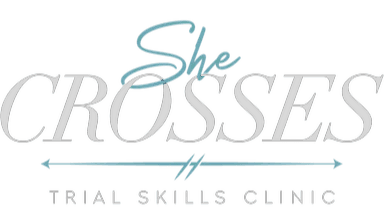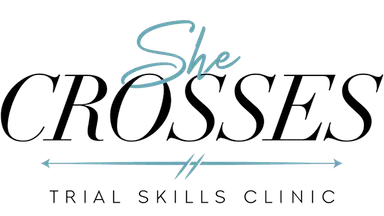Average Cost Per View on YouTube Advertising
Trusted by The Top Medical Legal Organizations in the Nation
YouTube, as one of the most popular video platforms on the web, offers an unparalleled opportunity for businesses and marketers to connect with audiences through visual storytelling. One of the primary metrics used to gauge the success and efficiency of a video advertising campaign on YouTube is the Cost Per View (CPV). In this article, we will delve deep into the concept of CPV, discuss the average cost, and shed light on factors that affect it.
What is Cost Per View (CPV)?
CPV is a billing method used by YouTube where the advertiser pays for video views or interactions, such as clicks on video overlays. A view counts when a viewer watches 30 seconds of your video (or the entire video if it's shorter than 30 seconds) or interacts with your video, whichever comes first.
What's the Average CPV on YouTube?
The average CPV on YouTube can vary significantly based on various factors like targeting, competition, video quality, and more. As of my last update in 2021, advertisers could expect an average CPV ranging from $0.01 to $0.30. However, this range is broad and can change based on the industry, targeted demographics, and region.
Factors Affecting CPV:
- Target Audience: The more specific and niche your target audience, the higher the CPV might be. This is due to competition; if multiple advertisers target the same niche, the cost can go up.
- Ad Quality: Videos that resonate with viewers and have high production quality can lead to better engagement. An engaging video can result in lower CPVs as YouTube's algorithm often rewards videos that people want to watch.
- Bidding Strategy: If you opt for a higher bid, your video ad is more likely to be shown to your target audience, but this can result in a higher CPV. Conversely, a lower bid might mean fewer views but a more efficient CPV.
- Placement: If you're targeting premium placements or popular channels, the CPV can be on the higher side.
- Geographic Location: Advertising to audiences in countries with high purchasing power might have a higher CPV compared to targeting emerging or less competitive markets.
- Ad Format: YouTube offers various ad formats, including in-stream ads, discovery ads, and bumper ads. Each format has its own average CPV. For example, bumper ads, which are 6 seconds long, often have a different CPV compared to longer in-stream ads.
Ways to Optimize CPV:
- Refine Targeting: Ensure you're targeting the right audience. Use YouTube's analytics to understand viewer demographics and interests and adjust your campaigns accordingly.
- Test Creatives: Regularly test different video creatives to determine which one resonates most with your audience. The higher the engagement, the potentially lower the CPV.
- Adjust Bids: Monitor your campaigns and adjust your bids based on performance. Sometimes, a slight decrease in bid can lead to a more efficient CPV without a significant drop in views.
- Optimize Video Quality: Ensure your videos are of high quality, relevant, and engaging. Videos that viewers watch longer can help in reducing the CPV.
- Use Retargeting: Retarget viewers who have interacted with your content in the past. They are more likely to engage again, potentially leading to a lower CPV.
In Conclusion:
While the average CPV on YouTube provides a benchmark, it's essential for advertisers to focus on the broader picture. Instead of merely seeking a low CPV, aim for a balance between cost and the quality of engagement. Remember, a slightly higher CPV for a highly-engaged and relevant audience might offer better returns in the long run than a low CPV for a less interested viewer base.
Connect With Our Sales Team & Learn How to Augment Your Marketing Performance
By submitting this form, I confirm that I have read and understood the The Casely Group's Privacy Statement. This site is protected by reCAPTCHA and the Google Privacy Policy and Terms of Service apply.
Turning Marketing Into a Competitive Advantage for Law Firms
Learn how structured, strategic marketing helps law firms move from reactive tactics to predictable ...
Resilient Web Development: Creating Law Firm Infrastructure That Withstands Digital Change
Learn how resilient, high-performance web development helps law firms scale ethically, build trust, ...
Reducing Perceived Risk: How Video Ads Make Choosing a Law Firm Feel Safer
Discover how strategic video ads reduce perceived risk, build confidence, and support legal decision...
From Reactive to Predictable: Building a Structured Marketing Engine for Law Firms
Discover how structured marketing systems help law firms move from reactive campaigns to sustainable...
Future-Ready Web Development: Building Law Firm Infrastructure for Trust, Scale, and Change
Explore how strategic, ethical, and flexible web development helps law firms build trust, scale sust...
Video Ads as Pre-Decision Tools: Preparing Law Firm Prospects Before They Choose
Discover how video ads prepare law firm prospects emotionally and cognitively, building confidence b...
Strategic Law Firm Marketing: Turning Visibility Into Sustainable, Predictable Growth
Learn how strategic marketing systems help law firms move beyond visibility and build predictable, l...
"Davin Casely is the most relentless marketing professional that I have ever met... He is a Marketing Genius... If you don't hire him, then you don't want to make money..."

Dan Ambrose, CEO of Trial Lawyers University
"If you haven't reached out to The Casely Group to Increase Business, Revenue and Footprint across the country, then you're making a big mistake. The Casely Group, Best In The Business!"

Brett K. Findler
"If You're Going to Bet On Someone, Bet on Davin Casely…"

Ricky Velasquez






































































































































